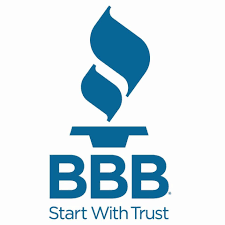BBB warns car buyers to avoid the ‘yo-Yo’
Published 9:25 am Thursday, June 8, 2023

- To learn more about sweepstakes scams and how they work, see BBB’s study on these scams at BBB.org/ScamStudies. If you’ve been the victim of a scam, please report it to www.BBB.org/ScamTracker. By sharing your experience, you can help others avoid falling victim to similar scams.
National Public Radio (NPR) recently interviewed multiple car buyers who experienced the “yo-yo.” This occurs when a car buyer signs papers and takes the car off the lot, only to have the dealership announce days or weeks later that the financing fell through. The dealer indicates that the deal is invalid, and the car must be returned or refinanced at a different rate. By this point, the buyers may have sold or traded in their previous vehicle, or at least have been seen by family, friends, and neighbors driving the new vehicle…causing them to feel trapped.
The Federal Trade Commission (FTC) collected public comments in 2022 on a new trade regulation rule for motor vehicle dealers that would prohibit dealers from certain deceptive practices related to financing and add-on products.
In addition, your Better Business Bureau (BBB) is dedicated to helping preserve “an ethical marketplace where buyers and sellers trust each other.” BBB strives to support best practices.
While these practices are being reviewed against current regulations, your BBB and the FTC offer recommendations to help ensure you experience a smooth, honest, safe transaction when making a major purchase like that of a new vehicle.
Here are tips to help you with your car-buying decision:
Do your research. Check if the dealer is BBB Accredited and read the dealership complaints and reviews. Before you go, research the basics of the make and model you want and if you are looking for a used or a new car.
Determine financing options. Decide how you plan to finance the car. Before arriving at the dealership, consider looking online at the best deals to stay on a budget that works for you. Ask about their leasing policies to see if they are a good fit. If you decide to do preapprovals, the FTC advises doing only a few since your credit will be pulled each time.
Check to make sure you’re using secure sites. If you decide to do online preapprovals, be aware of online safety and ensure that the website is secure. Look for the closed lock by the URL and a website link that starts with https:// instead of http://.
Visit the dealership. Look at the car before you make a purchase. Visit the dealership in person to see the vehicle and take the car for a test drive. Check for any exterior or interior damage that may not have been disclosed. Ask about the history of the car: has it been used? How many owners does the car have? Has it been in any accidents? It’s important that you are comfortable with your chosen make and model before driving off the lot.
Have an independent mechanic check the vehicle. If this is a used vehicle, ask if you can take the car to a local, trusted mechanic to have it reviewed for any concerns. You should do this before you make a purchase to avoid headaches later and be wary of a company that won’t allow you to do so.
Negotiate the best rate. Ask questions regarding warranties, trade-ins, service contracts, and other add-on services. Ensure you have a clear understanding of your deal before you sign. If a dealer attempts a yo-yo situation, ask the dealer if they can work with you versus returning the car or paying a higher rate.
Be on the lookout for red flags. Always use payment methods that offer security in case of a return. Never do handshake deals; get documentation of everything to ensure that your purchase is official. Do not be afraid to walk away if you don’t feel comfortable; you do not have to do business with a shady dealer.
Purchasing a car is a big decision that can come with many uncertainties. Practice smart shopping both online and in-person, and always look for businesses that follow BBB Standards for Trust by visiting BBB.org.
Kelvin Collins is president & CEO of the Better Business Bureau serving the Fall Line Corridor, serving 77 counties in East Alabama, West Georgia, Southwest Georgia, Central Georgia, East Georgia, and Western South Carolina. This tips column is provided through the local BBB and the International Association of Better Business Bureaus (IABBB). The Better Business Bureau sets standards for ethical business behavior, monitors compliance and helps consumers identify trustworthy businesses. Questions or complaints about a specific company or charity should be referred directly to the BBB at Phone: 1-800-763-4222, Web site: BBB.org or E-mail: info@centralgeorgia.bbb.org

